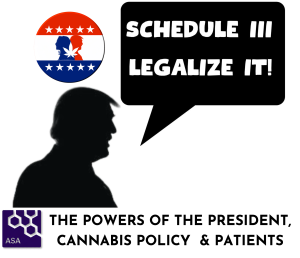California Cannabis Industry Struggles Amid Pesticide Scandal

California’s cannabis industry is facing a significant challenge as a pesticide scandal has shaken consumer confidence. Brands, retailers, and testing labs are working tirelessly to regain trust following reports of contaminated products.
Independent Testing Efforts
Catalyst Cannabis Co., a prominent retailer based in Long Beach, has started conducting its own lab tests to detect potential contamination. This move comes after reports by the Los Angeles Times and WeedWeek revealed pesticide presence in several regulated cannabis products. These findings indicated contamination levels exceeding the U.S. Environmental Protection Agency’s thresholds for single exposure, posing safety risks to consumers.
Elliot Lewis, CEO of Catalyst Cannabis Co., is spearheading this initiative by testing a selection of products from their shelves. With 28 locations and thousands of SKUs, comprehensive testing is impractical. Instead, Catalyst focuses on high-risk items like pre-rolls and vapes, which are often made with THC distillate from multiple vendors, increasing the likelihood of contamination. Lewis is prepared to publicly call out any brands found supplying contaminated products and might enforce retail bans to ensure shelf safety.
State Actions and Industry Reactions
The Department of Cannabis Control (DCC) has been criticized for its regulatory oversight following the exposure of contaminated products. The DCC recently issued a recall for a 1-gram Curepen vape cartridge from West Coast Cure (WCC) due to the presence of chlorfenapyr, a banned pesticide in California. WCC maintains that all their products undergo stringent lab testing and that contaminated products are destroyed or returned to vendors.
Consumers’ trust has been severely impacted, with some, like Bradley “James” Gude, a loyal WCC customer, now considering alternative brands. Catalyst’s Lewis has observed a slight dip in business since the scandal broke and is considering in-house certifications based on their testing results to reassure customers.
Increased Scrutiny and Industry Adjustments

Other retailers, such as The Artist Tree, have also seen increased customer inquiries about product safety. Founder Lauren Fontein stated that they provide certificates of analysis (COAs) upon request and offer test result information via QR codes on many products.
The controversy has highlighted issues within California’s testing labs. Nate Winokur, VP of BelCosta Labs, welcomes the increased scrutiny, viewing it as a positive step toward ensuring safety and wellness in cannabis products. BelCosta has seen an uptick in business as operators seek more reliable testing services, especially after the DCC suspended the license of Verity Analytics.
Legal and Regulatory Fallout
The scandal has intensified infighting within the industry. Infinite Chemical Analysis and Anresco Labs recently filed a lawsuit against 13 labs for allegedly inflating potency results and ignoring contaminants. The DCC is under fire for its perceived lack of oversight, which critics say has allowed bad practices to proliferate.
George Sadler, CEO of Gelato, expressed frustration with the DCC’s handling of recalls and the lack of accountability for labs. Sadler emphasized that brands and manufacturers often rely on COAs from licensed labs, and when products fail post-distribution testing, it’s typically not the fault of the brands.
Moving Forward
The DCC has ramped up its enforcement efforts, issuing more recalls and regulatory actions in 2024 compared to previous years. The agency is committed to supporting compliant licensees while taking aggressive actions against non-compliant entities.
As the industry works to clean up its act and restore consumer confidence, it faces the ongoing challenge of ensuring all players adhere to stringent safety standards.





